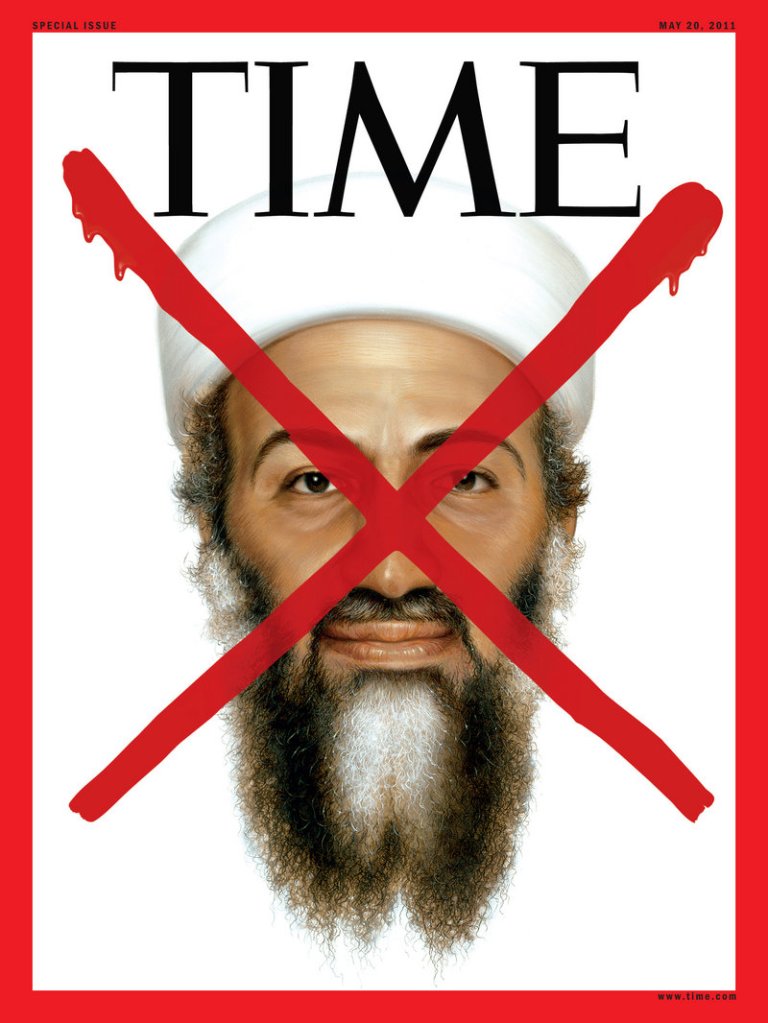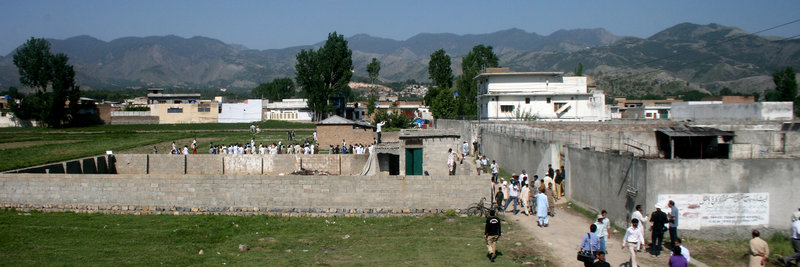WASHINGTON – The White House retreated Tuesday from its most provocative assertions about the operation to kill Osama bin Laden, acknowledging that the al-Qaida leader was neither armed nor hiding behind a female “human shield” when U.S. commandos fatally shot him during a predawn raid.
The disclosures put the Obama administration on the defensive about whether it had exaggerated elements of earlier accounts for propaganda gain. At the same time, additional details surfaced Tuesday that depict a mission launched amid far greater political and operational uncertainty than had been revealed.
CIA Director Leon Panetta, who supervised the operation, said in interviews that U.S. intelligence agencies never had photographs or other proof that bin Laden was living at the compound in Pakistan that was targeted. Panetta told Time magazine that analysts were only 60 percent to 80 percent confident that bin Laden would be found.
“We never had direct evidence that he in fact had ever been there or was located there,” Panetta said in a separate interview with “PBS NewsHour.” “The reality was that we could have gone in there and not found bin Laden at all.”
President Obama nevertheless approved the operation, Panetta and other U.S. officials said, because there was little chance of obtaining more definitive intelligence on bin Laden’s location, which had amounted to a guessing game for the better part of 10 years.
U.S. commandos left with not only bin Laden’s body, but also a cache of computers and other material found at the compound, “more than we were expecting to find,” said a U.S. intelligence official, who like others discussed operational details on the condition of anonymity.
“There’s written material, pictures — there’s all kinds of stuff,” the official said. The material, portions of which appear to have been bin Laden’s personal property, were being shipped to CIA headquarters in Virginia for analysis. Some digital files were transmitted electronically.
The backpedaling on the narrative of the operation created an awkward moment for the Obama administration in what has otherwise been an overwhelmingly positive week. Rep. Mike Rogers, R-Mich., chairman of the House Intelligence Committee, chided the White House for appearing to exploit bin Laden’s demise.
“I think we can get in trouble if people try to misuse this for political or propaganda gains,” Rogers said in a telephone interview. “I don’t think that’s going to be helpful at the end of the day.”
White House spokesman Jay Carney attributed the missteps to the administration’s “great haste” in trying to share details even while operational updates were still pouring in. He and other officials stressed that the White House corrected the inaccuracies voluntarily as the quality of the information improved.
Other officials attributed some of the confusion to conflicting information in field reports assembled by military officials still trying to document the details of a complex and chaotic operation that unfolded in 40 minutes in the Pakistani garrison city of Abbottabad.
The account that Carney presented differed in key respects from one that White House counterterrorism adviser John Brennan provided the previous day. Brennan spoke mockingly of bin Laden’s behavior, saying the al-Qaida leader had cowered behind his wife in the lavish hideout before being shot in an intense gunfire exchange.
“He was engaged in a firefight with those that entered,” Brennan said, adding that bin Laden had been “hiding behind women who were put in front of him as a shield.”
Brennan said it was unclear whether bin Laden had actually fired a weapon. “Whether or not he got off any rounds, I, quite frankly, don’t know,” he said. He also said it was possible that the woman in the line of fire, “presumed to be his wife,” may have been acting of her own will.
Carney made major changes to that account, saying that bin Laden’s wife had “rushed the U.S. assaulter and was shot in the leg but not killed. Bin Laden was then shot and killed. He was not armed.”
Carney and others defended the administration’s assertion that the team of 25 U.S. Navy SEALs and other operatives was prepared to take bin Laden alive. “He resisted the U.S. personnel,” Carney said. When pressed how he did so without a weapon, Carney said that “resistance does not require a firearm.”
Panetta said the rules of engagement would have required U.S. forces to take bin Laden into custody if he had “thrown up his hands, surrendered and didn’t appear to be representing any kind of threat.”
But, Panetta said, “I don’t think he had a lot of time to say anything.” Panetta said that when the lead Navy SEAL reached the third-floor unit where bin Laden was located, “there were some threatening moves that were made . . . and that’s the reason they fired.”
A U.S. official briefed on the raid said the first SEAL to confront bin Laden perceived a hostile intent. “He was not lying on the floor or trying to surrender,” the official said. “He was resisting.”
Carney declined to elaborate on the nature of bin Laden’s resistance, and referred reporters to the Defense Department. Pentagon spokesman Geoff Morrell said officials would not provide further details.
Before encountering bin Laden, U.S. commandos fatally shot two of his protectors on the ground floor, as well as a woman caught “in crossfire,” Carney said. Brennan had said earlier that the woman killed in the operation was thought to be bin Laden’s wife and had served as a shield.
Brennan’s comments were part of a broader effort to portray the al-Qaida leader as a cowardly figure at the culmination of a decade-long manhunt led by the CIA.
“Here is bin Laden, who has been calling for these attacks, living in this million-dollar-plus compound, living in an area that is far removed from the front, hiding behind women who were put in front of him as a shield,” Brennan told reporters Monday. “I think it really just speaks to just how false his narrative has been over the years.”
Bin Laden’s wife, who identified the al-Qaida leader’s body after the raid, has been treated for injuries and is in the custody of Pakistan’s intelligence service. A U.S. official said she told Pakistani authorities that bin Laden had lived in the complex, at least part of the time, since it was built in 2005. The official said that a U.S. request for access to the woman has been denied.
The CIA became suspicious that the heavily fortified complex might house bin Laden after discovering that it was the residence of a courier with close ties to the al-Qaida leader.
U.S. spy satellites scrutinized the site for months, but were unable to capture an image of bin Laden. At one point, Panetta told PBS, “we noticed an individual who was pacing in the courtyard who at least had some of the appearances” of the al-Qaida chief. “But we were never able to verify that in fact it was him.”
In early fall, the CIA called the National Geospatial-Intelligence Agency to help pinpoint the compound’s location. Using satellite images, information from sources and transcripts of intercepted phone calls, the NGA produced imagery analysis that described in detail the compound’s dimensions, features and even the “pattern of life” behavior of its residents, a senior NGA analyst said.
But even in the raid’s aftermath, confusion remains over the identities of some of the surviving occupants of the compound, which was home to a dozen or more women and children.
U.S. officials think that at least two of the women were bin Laden’s wives and that he had fathered several of the children, but their names and ages were not immediately known.
Bin Laden is believed to have taken at least four wives and fathered at least 11 children. Whether his family expanded further while in hiding in Pakistan was also not immediately clear.
Staff writers Ellen Nakashima and Craig Whitlock and staff researcher Julie Tate contributed to this report.
Send questions/comments to the editors.




Success. Please wait for the page to reload. If the page does not reload within 5 seconds, please refresh the page.
Enter your email and password to access comments.
Hi, to comment on stories you must . This profile is in addition to your subscription and website login.
Already have a commenting profile? .
Invalid username/password.
Please check your email to confirm and complete your registration.
Only subscribers are eligible to post comments. Please subscribe or login first for digital access. Here’s why.
Use the form below to reset your password. When you've submitted your account email, we will send an email with a reset code.